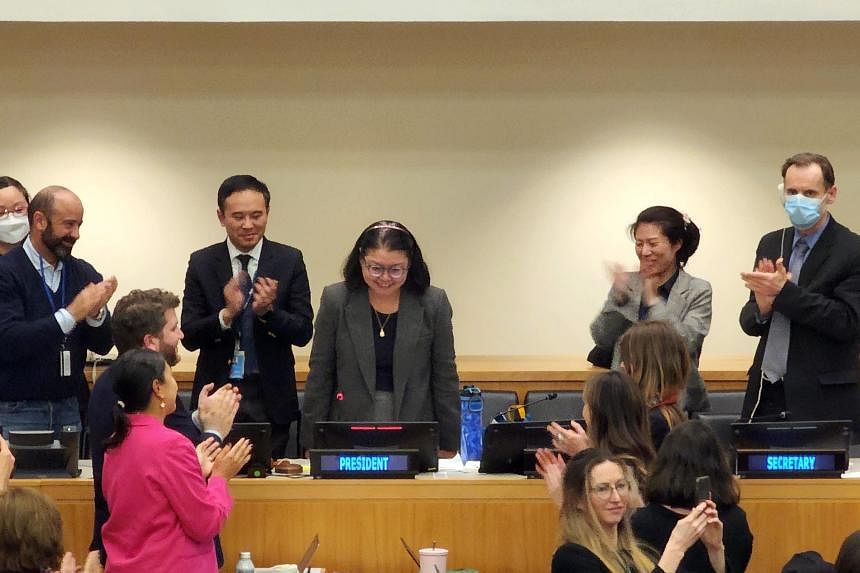
WASHINGTON - United Nations member states have agreed to the text of a landmark international treaty to protect the high seas beyond individual countries’ jurisdictions – the planet’s largest reservoir of biodiversity, of which only 1 per cent is currently protected.
“The ship has reached the shore,” conference president Rena Lee announced on Saturday night, to wide relief and applause from delegates after a gruelling, almost 40-hour session capping two weeks of negotiations at the UN headquarters in New York.
The agreement will be formally adopted after vetting by lawyers and translation into the UN’s six official languages.
“There will be no reopening or discussions of substance,” Mrs Lee told negotiators.
The treaty on the “Conservation and sustainable use of marine biodiversity of areas beyond national jurisdiction”, among other things, obliges countries to conduct environmental impact assessments of proposed activities on the high seas. No longer will the waters beyond countries’ jurisdictions be a free-for-all.
A sensitive chapter on the sharing of potential benefits of newly discovered marine resources was one of the points of contention, with developing countries fighting against exclusion from potential commercialisation of discoveries.
“This new agreement on biodiversity of the high seas and deep seabed is the culmination of the dedicated efforts of countless persons committed to strengthening the protections of the biodiversity of our high seas and deep seabed. It represents a hopeful pathway for us to better govern our use of such precious resources,” said Mrs Lee, who is Singapore’s Ambassador for Oceans and Law of the Sea Issues and Special Envoy of the Minister for Foreign Affairs.
“Much more hard work lies ahead to achieve our objective, and I hope that the agreement gives a boost to such efforts. But more than this, the conclusion of this agreement represents a strong affirmation that when nations come together, there is so much more that we can achieve collectively for the betterment of our world.”
Mrs Lee, who has been chairing the talks since 2018, is the second Singaporean to chair a UN conference on the law of the sea.
The first was Ambassador-at-Large Tommy Koh, who chaired the conference that came up with the United Nations Convention on the Law of the Sea (Unclos) in 1982.
“This is very good news,” Professor Koh told The Straits Times. “Given how fragmented the world has become, we were not sure whether Rena would be able to find consensus.”
He added: “What this shows is that multilateralism and international cooperation are still alive.
“The question is whether biodiversity is the common heritage of mankind. If so, how should the benefits be shared with all mankind, especially developing countries? The conference has managed to find consensus on all these important issues.”
Singapore Prime Minister Lee Hsien Loong said in a Facebook post on Sunday: “Oceans are critical to island states like us. Happy to see Singaporeans contribute and lead in this arena. It is a step forward for our planet and for all who share the habitat together.”
https://news.google.com/rss/articles/CBMidGh0dHBzOi8vd3d3LnN0cmFpdHN0aW1lcy5jb20vd29ybGQvdW5pdGVkLXN0YXRlcy9sb25nLXNvdWdodC1oaWdoLXNlYXMtdHJlYXR5LWEtbGFuZG1hcmstd2luLWZvci1vY2VhbnMtYmlvZGl2ZXJzaXR50gEA?oc=5
2023-03-05 15:43:18Z
1812215636
Tidak ada komentar:
Posting Komentar